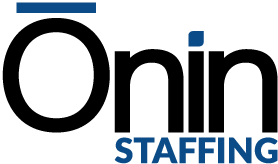
Without a clear idea of what you want and what success looks like, it can be difficult to take the first step towards achieving your goals. This post will discuss the importance of defining success on your terms, then setting goals and creating a plan to bring them into reality.
Dream Big Dreams
Every goal should start as a crazy dream. The idea of taking action toward this dream should make you nervous. If it doesn’t, it’s not going to be exciting enough to carry you through the roadblocks and speedbumps you will inevitably encounter. If you’re not even reaching beyond your comfort zone, you will never grow. It’s important to dream big and think outside of the box.
In fact, the more dreams you have, the better. It is a common occurrence for people to experience a bit of depression or lack of direction after they realize a big goal. Having a whole list of dreams means you always have something to start working toward once you’re done celebrating your latest win.
Sit down and try to write out a list of 100 things you’d love to do, have or be if you knew you couldn’t fail and money was no object. The first 25 will be pretty easy. The next 50 will be a challenge, and you’ll probably have to work to come up with the last 25. But you owe it to yourself to invest the time and effort, because those last 25 will uncover some of the things that you really want deep down but maybe haven’t allowed yourself to admit that you want. Those are likely to be your big, hairy, audacious goals… the ones that will change your life just by attempting them.
Turn a Dream Into a Goal
Get S.M.A.R.T. about your goals. Setting specific, measurable, achievable, relevant and time-bounded goals can help you reach your dreams quicker than just thinking big! If you dream of being the next big author, how many books do you want to write this year? If you dream of moving from the production line to being a floor manger, what will you need to learn? The more specific and relevant your goals are, the easier it’ll be for you to stay motivated until they’re achieved.
Specific – Be specific about what you want to achieve. For instance, instead of saying you want to be an author, set super-clear goals complete with a timeframe: “I want to publish a book within the next three months.”
Measurable – How will you know when you’ve reached your goal? If it’s not measurable then how can you tell if you’re any closer to achieving it? Know where the finish line is. Then figure out where halfway is. Then figure out where the one-quarter and three-quarter marks are. Now, don’t just focus on the end result. Focus on that first step until you get there, then evaluate and take that next step.
Achievable – Is your goal achievable? This isn’t a question that anyone can answer but you. People told the Wright Brothers and Edison and Steve Jobs that they were crazy… that their goals were impossible. But today, we fly and turn on the lights and purchase things from halfway around the world on smartphones every day. So the question isn’t “is it possible?” The question is “how can you figure out a way to do it, or find someone who can help.”
You have your milestones from making your goal measurable, now create a list of concrete action steps that will get you to your first milestone. Include at least one step you can take RIGHT NOW to get the momentum started. If possible, create one more you can cross off your list today. It could be something as simple as researching existing options or calling someone to set up an appointment. Anything you can do so you start investing effort into this goal right away.
Relevant – Is your goal relevant? If you set a specific, measurable and achievable goal but it’s not relevant to what you want then how will it help you get where you’re going? A good example of this is if someone wants to be a manager because they think that paycheck would look nice. But that person hates being in charge, hates managing employees and doesn’t have any interest in being accountable for the work of others. So that goal isn’t relevant to who they are and what they really want. They’d get a bigger paycheck, but they’d be miserable. (That’s why our dream list started with things we want to do, have or be).
Time-bounded – If you want to ACTUALLY achieve your goals, set deadlines. If you’re writing your first book then maybe just finishing it and sending it out is the one goal for this year (since you can’t control the time tables of agents, editors and publishers). If you need to learn about managing people, decide to read the top three books on leadership and management in the next month, and then talk to your managers or supervisors about their thoughts on what you’ve learned and how they might apply to your team, so they know you have taken an active interest.
Whatever the steps are to achieving your goals, without clear deadlines, you will find excuses and procrastinate. Hold yourself accountable and get it done ASAP.
Create Your Own “Success,” Then Stick To The Formula
Success is something that everyone defines for themselves. No one should define what success looks like for you. But, the formula to achieve success is simple: Commit to what you want, take action to make it a reality, when something’s not working, adapt your plan of attack. So many success stories include a moment where the person was on the verge of giving up and decided to give it one more push… and that’s when they found success.
Don’t be the one who gave up on that one last push that would have given them everything they’d worked so hard for.
Turn Your Goal Into An Action Plan
Reverse engineer your outcome, creating 5-7 milestones from where you are now to where you want to be. Then create an action plan to get to that first milestone For example, if your goal is to be an author then maybe one of those milestones would be publishing a short story. Your action plan might include deciding on a plot or theme, scheduling 1 hour per day to do nothing but write, completing a rough draft, editing it to a complete 1st draft, sharing it with a friend or writing group, re-writing a 2nd draft, and sending it off to a magazine or website.
Then once you have that milestone behind you, what’s the action plan for the next milestone? Perhaps it’ll take writing another five stories before anyone wants to publish them. So you keep sending them to new outlets and keep writing more stories until you hit that final milestone of being a published author.
See What Works And What Doesn’t, And Adapt.
Let’s go over this point again, because it’s that important. You only fail if you give up. In fact, the only difference between someone with big wins and someone with big dreams is that the dreamer gave up when things got difficult. You can’t expect everything to go according to plan. Just because you’ve been doing something well doesn’t mean that it’ll have the result you want. Be open-minded and be willing to adapt your goals as you learn more about yourself, what works for you and what doesn’t.
Enjoy Your Success… and Then Tackle a New Dream!
When you hit that final milestone and realized that goal you’ve been working towards, there is a thrill of accomplishment. Take a moment. Revel in it. But, as we mentioned before, that feeling (as amazing as it is) won’t last forever.
The feeling of moving forward and working toward your dream– that feeling of having a purpose that drives you– is a powerful thing. Without that sense of purpose after you’ve achieved your goal can lead to a sense of, well, purposelessness. A lack of direction. Don’t let that take hold. Use it as a prompt that it’s time to start tackling another dream. It’s fine. If you did the exercise at the beginning, you’ve got plenty to spare.











